The Technical University of Munich (TUM) stands as one of Germany’s premier institutions of higher education, renowned for its excellence in research, teaching, and innovation. This comprehensive topic explores everything you need to know about TUM, from its prestigious rankings and competitive admission processes to its educational offerings, costs, and opportunities for international students.
Overview of TUM
TUM is a member of the TU9, an alliance of nine leading technical universities in Germany. The university emphasizes interdisciplinary education, entrepreneurship, and global engagement.
- Established: 1868
- Type: Public Research University
- Campuses: Munich, Garching, Freising-Weihenstephan, Straubing
- Total Students: Approximately 34,597
- International Students: Over 15,000 (about 45% of the student body)
- Academic Structure: 15 departments/schools offering around 200 degree programs
Technical University of Munich: History and Overview
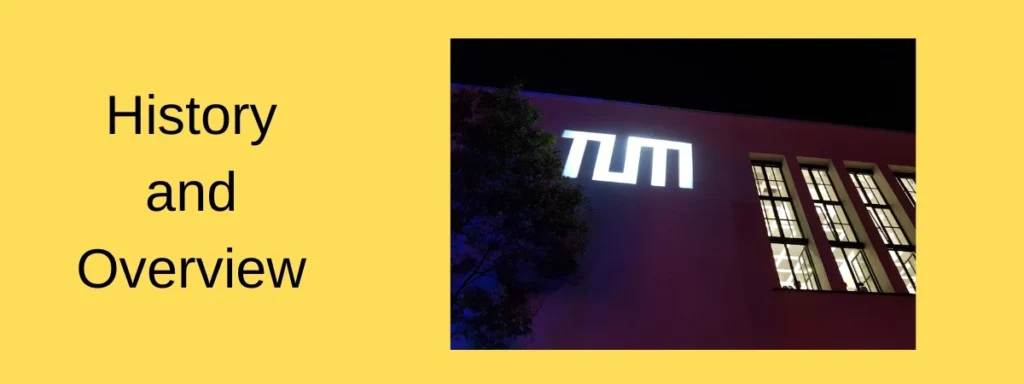
Founded in 1868 by King Ludwig II of Bavaria, the Technical University of Munich began as the “Polytechnische Schule München” and was granted university status in 1970. With over 150 years of academic tradition, TUM has evolved into a global powerhouse in science and technology education. Today, it operates across multiple campuses in Munich, Garching, Freising-Weihenstephan, Heilbronn, and Singapore, serving approximately 50,000 students from over 140 countries.
TUM’s commitment to excellence is reflected in its motto “TUM. The Entrepreneurial University,” emphasizing its focus on innovation, practical application of knowledge, and close collaboration with industry partners. The university has produced notable alumni, including 17 Nobel laureates and numerous leaders in science, industry, and politics.
Key Milestones
- 1868: Founding of the university.
- 1901: Granted the right to award doctorates.
- 1930: Renamed “Technische Hochschule München.”
- 1970: Became “Technische Universität München” (TUM).
- 2006: Designated as one of Germany’s first “Universities of Excellence” under the German Excellence Initiative.
- 2019: Retained its “University of Excellence” status in the Excellence Strategy competition.
Technical University of Munich Acceptance Rate
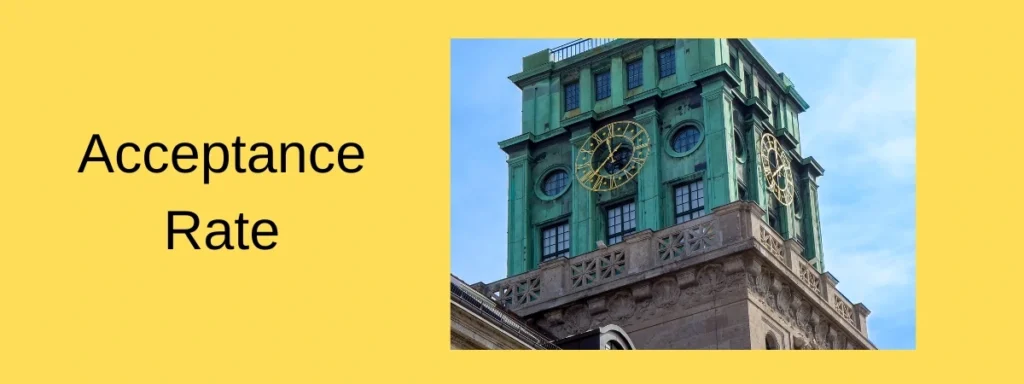
TUM is highly selective, with an average acceptance rate of around 8-12% for most competitive programs. The acceptance rate varies depending on the program and level of study.
Technical University of Munich Acceptance Rate for Master’s
Master’s programs at TUM are highly competitive, particularly in fields like Computer Science, Mechanical Engineering, and Data Science. The acceptance rate for Master’s programs ranges between 10-20%, depending on the department.
Acceptance Rate by Popular Programs
| Program | Estimated Acceptance Rate |
| Computer Science (M.Sc.) | 10-15% |
| Mechanical Engineering (M.Sc.) | 15-20% |
| Data Engineering & Analytics (M.Sc.) | 10-12% |
| Electrical Engineering (M.Sc.) | 15-18% |
| Management & Technology (M.Sc.) | 12-15% |
Rankings and Reputation of Technical University of Munich

TUM consistently ranks among the top universities globally:
| Ranking System | Global Rank | Subject Highlights |
| QS World University Rankings | #37 | #1 in Germany, Top 10 in Engineering |
| THE World University Rankings | #30 | Top 5 in Computer Science |
| ARWU (Shanghai Ranking) | #48 | Leading in Mechanical Engineering |
| U.S. News Best Global Universities | #74 | Strong in Chemistry & Materials Science |
Technical University of Munich QS Ranking
TUM consistently achieves outstanding positions in global university rankings, cementing its reputation as one of Europe’s leading technical universities. In recent years, it has demonstrated remarkable performance across various ranking systems:
QS World University Rankings
TUM achieved an impressive 37th place globally in the QS World University Rankings 2024, making it the highest-ranked German university. This represents a significant achievement in the international academic landscape and reflects TUM’s commitment to excellence across all evaluation criteria.
For subject-specific rankings, TUM performs exceptionally well in:
| Subject Area | QS World Ranking |
| Engineering & Technology | 21st |
| Natural Sciences | 31st |
| Life Sciences & Medicine | 49th |
| Computer Science | 19th |
| Mechanical Engineering | 15th |
| Chemistry | 24th |
| Physics & Astronomy | 28th |
Technical University of Munich: Top Courses
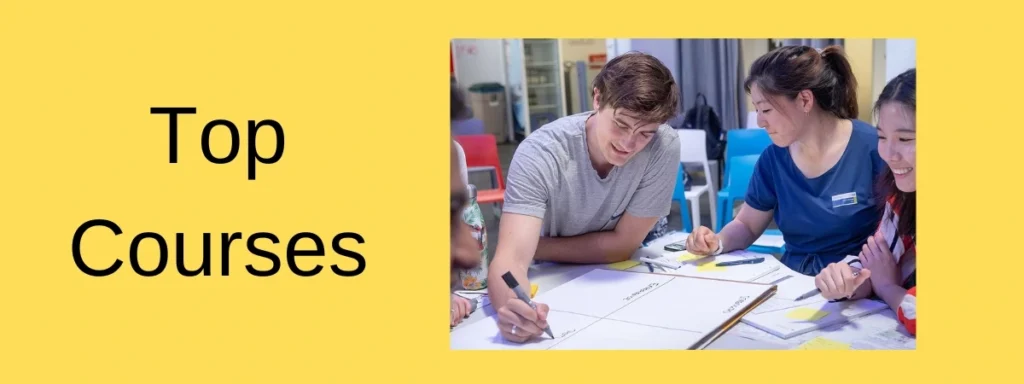
The following programs are internationally recognized for their excellence and are consistently ranked among the best in Europe:
- Mechanical Engineering: Combining traditional engineering principles with cutting-edge technology and strong industry connections.
- Electrical Engineering and Information Technology: Known for strengths in semiconductor technology, energy systems, and communications.
- Computer Science (Informatics): Offering specializations in artificial intelligence, data science, and cybersecurity.
- Physics: With exceptional laboratory facilities and connections to research centers like the Max Planck Institutes.
- Chemistry: Featuring innovative research in catalysis, synthesis, and molecular sciences.
- Mathematics: With strengths in applied mathematics, numerical analysis, and financial mathematics.
- Management & Technology: An interdisciplinary program combining technical expertise with business acumen.
- Medicine: Leveraging connections with Munich’s renowned university hospitals and research centers.
English-Taught Master’s Programs
TUM offers numerous master’s programs taught entirely in English, making it accessible to international students:
| Field | Notable English-Taught Programs |
| Engineering | Aerospace Engineering, Automotive Engineering, Industrial Biotechnology |
| Computer Science | Data Engineering and Analytics, Informatics, Biomedical Computing |
| Natural Sciences | Matter to Life, Quantum Science & Technology, Physics |
| Life Sciences | Nutrition and Biomedicine, Pharmaceutical Bioprocess Engineering |
| Management | Management & Technology, Consumer Science, Management & Innovation |
Innovative and Interdisciplinary Programs
TUM is known for pioneering interdisciplinary studies that bridge traditional boundaries:
- Robotics, Cognition, Intelligence: Combining computer science, mechanical engineering, and cognitive science.
- Sustainable Resource Management: Integrating natural sciences, economics, and policy studies.
- Biomedical Engineering and Medical Physics: Merging engineering principles with medical applications.
- Politics & Technology: Analyzing the intersection of technological advancement and policy implications.
- Human Factors Engineering: Exploring the human-machine interface in technological systems.
These interdisciplinary programs reflect TUM’s innovative approach to education and its commitment to addressing complex global challenges through cross-disciplinary collaboration.
TUM offers 150+ degree programs across disciplines. Here are the most popular:
Top Bachelor’s Programs
- B.Sc. Informatics
- B.Sc. Mechanical Engineering
- B.Sc. Electrical Engineering
- B.Sc. Physics
- B.Sc. Management & Technology
Top Master’s Programs
- M.Sc. Computer Science
- M.Sc. Data Engineering & Analytics
- M.Sc. Robotics & AI
- M.Sc. Automotive Engineering
- M.Sc. Finance & Information Management
Technical University of Munich: Academic Structure
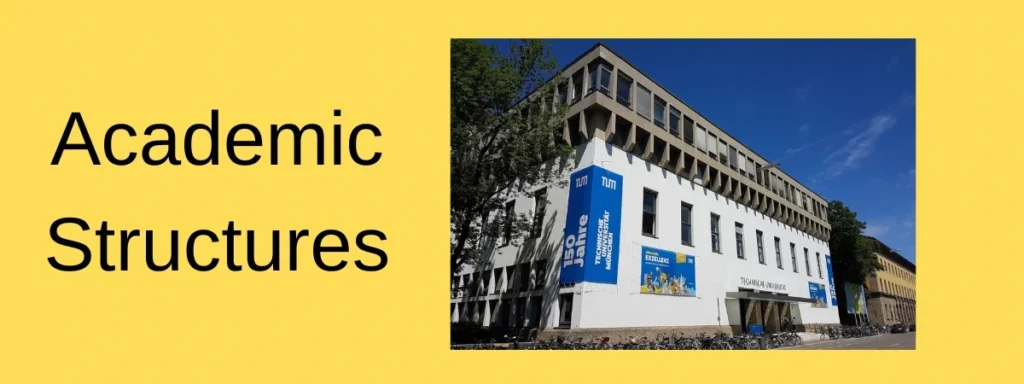
TUM offers 170+ degree programs across 15 departments, including:
- Department of Architecture
- Department of Chemistry
- Department of Civil, Geo & Environmental Engineering
- Department of Electrical & Computer Engineering
- Department of Informatics
- Department of Mathematics
- Department of Mechanical Engineering
- Department of Medicine (TUM School of Medicine)
- Department of Physics
- TUM School of Management
- TUM School of Life Sciences
- TUM School of Engineering & Design
- TUM School of Natural Sciences
- TUM School of Social Sciences & Technology
- TUM School of Computation, Information & Technology
Technical University of Munich: Tuition Fees
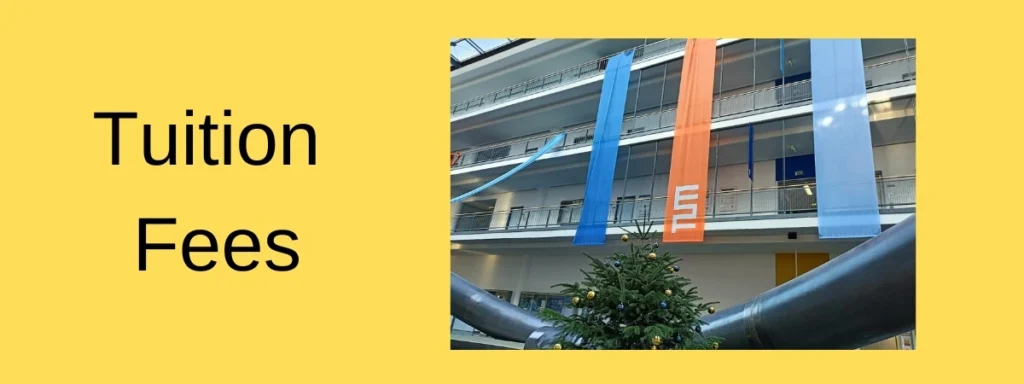
TUM offers excellent value for its world-class education, especially compared to universities of similar caliber in the United States, United Kingdom, or Australia. The tuition fee structure is relatively straightforward but varies depending on student status and program type.
Standard Tuition Fees
For most students, TUM charges only a semester contribution fee rather than traditional tuition. This fee structure applies to:
- German citizens
- EU/EEA citizens
- Non-EU students at the undergraduate and most graduate levels
| Fees Type | EU Students | Non-EU Students |
| Semester Fee (Basic Admin Fee) | €85-€150 | €85-€150 |
| Tuition Fee (Bachelor’s & Master’s) | €0 | €0 (Most Programs) |
| MBA Programs | €24,000 – €48,000 | €24,000 – €48,000 |
The semester contribution fee is approximately €144-€150 per semester and covers:
- Administrative costs
- Student union contributions
- A semester ticket for public transportation in Munich
Special Program Fees
Some specialized programs, particularly executive education and certain international master’s programs, charge additional tuition:
| Program | Approximate Tuition |
| Executive MBA | €29,500 (total program) |
| Master in Management | €25,000 (total program) |
| TUM-Asia Programs | €20,000-€30,000 (total program) |
Living Expenses
While tuition costs are relatively low, students should budget for living expenses in Munich, which is among Germany’s most expensive cities:
| Expense Category | Monthly Cost (Approximate) |
| Accommodation | €600-€1,000 |
| Food | €200-€300 |
| Medial Insurance | €105-€110 |
| Study Material | €50-€100 |
| Personal Expenses | €150-€250 |
| Total Monthly | €1,105-€1,760 |
Students typically need to provide proof of financial resources (approximately €11,904 per year) when applying for a German student visa.
Admission Requirements for the Technical University of Munich

Admission to the Technical University of Munich (TUM) is competitive, with requirements varying by degree level (Bachelor’s, Master’s, PhD) and program of study. Below is a detailed breakdown of the admission criteria, including academic qualifications, language proficiency, and additional requirements.
For Bachelor’s Programs
- Secondary School Diploma: Equivalent to the German Abitur (e.g., IB Diploma, A-Levels, High School Diploma with AP courses).
- Program-Specific Prerequisites: Some programs (e.g., Engineering, Natural Sciences) require STEM subjects (Math, Physics, Chemistry).
- Entrance Qualification (VPD): Non-EU applicants must obtain a preliminary documentation (VPD) from uni-assist.
- Language Proficiency:
- German-taught programs: Goethe C2, TestDaF (4×4), DSH-2, or Telc C1 Hochschule.
- English-taught programs: IELTS (6.5+), TOEFL (88+), or Cambridge Certificate (C1 Advanced).
For Master’s Programs
- Relevant Bachelor’s Degree: Must be in a related field (e.g., Computer Science for an AI Master’s).
- Minimum GPA: Typically 2.5 or better (German grading system) or equivalent (e.g., 3.0/4.0 GPA).
- Program-Specific Requirements:
- Some programs require GRE (Quantitative: 160+) or GMAT (600+).
- Portfolio (Design/Architecture programs).
- Research proposal (for research-intensive programs).
- Language Proficiency:
- English programs: IELTS (6.5-7.0), TOEFL (90-100).
- German programs: B2 level Minimum
For PhD Programs
- Master’s Degree: In a relevant field with a strong academic record.
- Supervisor Acceptance: Must secure a professor’s approval before applying.
- Research Proposal: Required for most PhD positions.
- Language Requirements: Depends on the department (some accept English-only).
Technical University of Munich: Scholarships

TUM and various external organizations offer numerous scholarship opportunities to support talented students throughout their academic journey. These financial aid options help make a TUM education accessible to deserving students regardless of their financial background.
University-Funded Scholarships
TUM maintains several institutional scholarship programs:
- Deutschlandstipendium: Awards €300 monthly for at least two semesters to high-achieving students, with 50% funded by the German government and 50% by private donors.
- TUM Graduate School Funding: Provides financial support specifically for doctoral candidates, including research grants and travel funds.
- TUM-GE Scholarship: A partnership with General Electric, offering financial support to outstanding students in engineering disciplines.
- Welcome Scholarship: Short-term financial assistance for international students experiencing financial hardship during their initial months at TUM.
External Scholarship Opportunities
TUM students can also access numerous external scholarship programs:
- DAAD Scholarships: The German Academic Exchange Service offers various scholarships for international students, including:
- Study Scholarships for Graduate Students
- Research Grants
- Development-Related Postgraduate Courses
- Erasmus+ Program: For EU students and partner countries, providing funding for exchange periods and full degree programs.
- Bavarian Government Scholarships: The Free State of Bavaria offers various funding options for international students.
- Foundation Scholarships: Various German foundations such as Heinrich Böll Foundation, Konrad Adenauer Foundation, and Friedrich Ebert Foundation provide merit-based scholarships.
Application Tips
To maximize scholarship opportunities at TUM:
- Apply early, as many scholarships have deadlines 6-12 months before the academic year begins
- Maintain excellent academic records, as most scholarships are merit-based
- Demonstrate community involvement and leadership potential
- Prepare strong letters of motivation highlighting academic achievements and career goals
- Utilize TUM’s scholarship database and consultation services through the International Office
The TUM Student Financial Aid Office provides comprehensive support services to help students identify and apply for appropriate funding opportunities throughout their academic journey.
Technical University of Munich Application: Deadline
TUM operates on a semester system with specific application periods and deadlines that vary by program level and type. Understanding these deadlines is crucial for successful admission planning.
Undergraduate Programs (Bachelor’s)
For most bachelor’s programs taught in German:
- Winter Semester: Application period typically runs from May 2 to July 15
- Summer Semester: Application period typically runs from January 2 to January 15
For international applicants requiring a visa, applying at the earliest possible date is strongly recommended to allow sufficient time for visa processing.
Graduate Programs (Master’s)
Master’s program deadlines vary significantly by department and whether the program is restricted admission (NC – Numerus Clausus) or unrestricted:
| Semester | Program Type | Application Period |
| Winter Semester | Most NC Programs | Feb – May |
| Winter Semester | Some Specialized Programs | Feb – May |
| Summer Semester | Most Programs | Sep – Nov |
Technical University of Munich Application Deadline for Master’s Programs
Popular master’s programs have the following specific deadlines:
| Program | Winter Semester Deadine | Summer Semester Deadline |
| Computer Science | July 15 | Jan 15 |
| Electrical Engineering | July 15 | Jan 15 |
| Management & Technology | July 15 | Jan 15 |
| Mechanical Engineering | July 15 | Jan 15 |
| Mathematics | July 15 | Jan 15 |
| Physics | July 15 | Jan 15 |
PhD Programs
Doctoral applications typically don’t follow fixed deadlines and can be submitted throughout the year. However, structured PhD programs may have specific application periods aligned with funding cycles.
Important Notes on Deadlines
- Deadlines are strictly enforced, with late applications typically not considered
- Some highly competitive programs may close applications earlier if capacity is reached
- Application portals typically open 2-3 months before the deadline
- International applicants should factor in additional time for document authentication, translations, and visa processing
- TUM’s academic calendar: Winter semester (October-March) and Summer semester (April-September)
Technical University of Munich: Top Computer Science Ranking
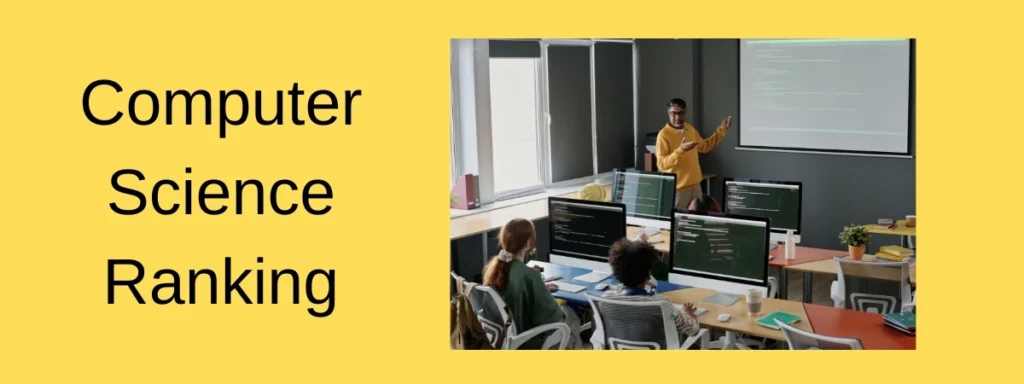
TUM’s Department of Informatics is one of the best in Europe. Here’s why:
- QS World University Rankings 2025: #17 in Computer Science
- THE Rankings 2024: Top 20 for AI & Machine Learning
- Strong Industry Partnerships: Collaborations with Google, BMW, Siemens, and IBM
Key Computer Science Programs at TUM
Graduates from TUM’s Computer Science programs have high employability, with 90% securing jobs within 6 months.
| Program | Duration | Language |
| M.Sc. Computer Science | 2 Years | English |
| M.Sc. Data Engineering & Analytics | 2 Years | English |
| M.Sc. Artificial Intelligence | 2 Years | English |
| B.Sc. Informatics | 3 Years | German |
TUM: Campuses and Infrastructure
TUM operates across multiple campuses, each specializing in different academic and research fields.
| Campus | Location | Key Focus Areas |
| Munich | City Center | Engineering, Natural Sciences, Management |
| Garching | Near Munich | Physics, Chemistry, Mechanical Engineering, Informatics |
| Freising-Weihenstephan | Freising | Life Sciences, Agriculture, Brewing, Food Technology |
| Heilbronn | Baden-Württemberg | Management, Digital Transformation |
| Singapore | Sinagpore | Industrial Chemistry, Aerospace |
Notable Facilities:
- Research Neutron Source (FRM II): One of the world’s most powerful neutron sources.
- TUM Institute for Advanced Study (TUM-IAS): Promotes interdisciplinary research.
- UnternehmerTUM: Europe’s largest innovation and startup center affiliated with a university.
Conclusion
The Technical University of Munich stands as a beacon of innovation, academic excellence, and global collaboration. With cutting-edge research, strong industry ties, and a dynamic student community, TUM remains a top choice for students and researchers worldwide. Its commitment to technology, sustainability, and entrepreneurship ensures its continued leadership in higher education.
FAQs
What is the acceptance rate at TUM?
TUM is highly competitive, with an average acceptance rate of 8-12% for most programs. Some master’s programs (e.g., Computer Science, Data Engineering) have acceptance rates as low as 10%.
What are the language requirements for studying at TUM?
1. German-taught programs: Require proficiency like Goethe C2, TestDaF (4×4), or DSH-2
2. English-taught programs: Require IELTS (6.5+), TOEFL iBT (88+), or Cambridge C1 Advanced.
Which are the most popular programs at TUM?
Top programs include:
1. M.Sc. Computer Science
2. M.Sc. Data Engineering & Analytics
3. M.Sc. Mechanical Engineerin
4. M.Sc. Management & Technology
5. B.Sc. Informatics
6. M.Sc. Robotics, Cognition & Intelligence
What is the average salary after graduating from TUM?
Depends on the field:
1. Computer Science: €60,000–€80,000/year
2. Engineering: €55,000–€75,000/year
3. MBA/Management: €70,000+
How safe is Munich for students?
Very safe! Munich is one of Germany’s safest cities with low crime rates.
Which TUM programs are taught in English?
Most bachelor’s programs are in German, while numerous master’s programs are offered entirely in English, particularly in engineering, computer science, and management.
How much money do I need to prove for a German student visa?
International students typically need to prove financial resources of approximately €11,904 per year (€992 per month).
Is there an application fee for TUM?
TUM doesn’t charge an application fee, but international applicants may need to pay for document verification through uni-assist (approximately €75).
How difficult are the programs at TUM?
TUM programs are academically rigorous with high standards. Engineering and science programs are particularly challenging, with comprehensive exams and project work.
How do I apply to TUM as an international student?
You need to apply via TUMonline, and non-EU students must also apply for preliminary documentation (VPD) through uni-assist.de.
Can I work while studying at TUM?
Yes, international students can work up to 120 full days or 240 half days per year without requiring a special work permit.
Related Post
TOEFL accepting universities in Germany
Top universities for engineering in Germany
Best universities for masters in Germany
German universities for international students














